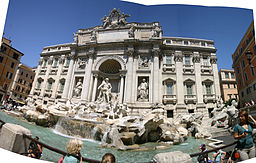
Formal or informal?
Getting the balance right between formality and informality when you have an interview can be quite tricky (difficult). In a recent discussion on the Milan Business English Network an MBEN member asked about this important topic: here’s his question – and my reply…
Dear all,
I have been selected for an interview in the Investment Banking sector. I have some doubts regarding the type of language to use during the interview. In fact, I believe that both the informal and the formal ones have their own specific advantages. First of all, speaking with a formal and technical language makes you more professional but you will probably make a higher number of mistakes. Conversely, speaking informally is easier and maybe, in a motivational interview, you can better express your real motivation and your passion…
I actually don’t know the solution to this dilemma…
Let me know what do you think about!
Thanks
Here’s my reply:
First of all, congratulations on getting an interview! You’ve cleared the first hurdle (obstacle) to getting a job in investment banking. You’re right to now focus on your strategy for the interview and, in particular, getting the right “tone” for your language.
The whole question of formal / informal language is definitely a key factor in communicating successfully in a business context in English. I have to say that (as with CVs – see my reply regarding the difference between Italian and British / American CVs), there is one big cultural difference between the Italians and the Anglo-Saxons, which is especially true in job interview. This is, basically, that in business Italian people tend to be TOO FORMAL (certainly when you have to speak to someone from Britain or the States. In Italy, of course, it’s perfectly normal to be quite (or even very) formal in a business situation, particularly when you don’t know the other person (which, obviously, is usually the case when you go for a job interview at a large company)).
Being too formal in an Anglo-Saxon business interview is a mistake, and here’s why:
People in business in English-speaking countries are generally more informal and relaxed with people they don’t know. You don’t need to spend a long time establishing a personal relationship with a business counterpart in order to overcome the barrier of formality. While the British are slightly more formal than the Americans, it is still generally the case that in a business setting people try and get to an informal level of communication as soon as possible. Why? It’s simple: because it’s easier to do business with someone without a lot of unnecessary formality. Yes, we wear suits and shake hands. But you will find that pretty much as soon as you sit down with your interviewer and start talking, they will try to establish an informal, one-to-one style of communication.
The reason for spending valuable time (and money) interviewing candidates for a job is that you can only tell so much from someone’s CV: you need to meet them face-to-face and find out what they’re really like. (In fact, many companies nowadays, particularly in younger industries such as web marketing, have abandoned formal interviews completely, deeming (judging) them to be too conventional and artificial. Instead, they ask candidates to form teams and undertake a mini-project, assessing their interaction, leadership potential and problem-solving skills simply by shadowing them as they complete the task assigned.) Nevertheless, formal interviews (particularly in more conservative sectors, such as banking, are still the main way banks and other companies get to know their potential colleagues).
You are quite right to draw (make) a distinction between the specific, technical jargon required and the softer, more personal language you use (especially when you are describing your individual qualities, professional goals and relevant experience from both your professional and social lives). With regard to the technical terms of banking and finance, any weak areas in your knowledge or understanding will be probed (explored) and tested. However, in my 20 years’ experience of teaching people from a wide range of professional backgrounds – as well as graduates applying for their first position – I have to say that the technical area is usually people’s strongest point: having either worked in the finance sector – or having studied the complex theories and statistical / quantitative methods that are required in order to operate successfully in this field – this is not, generally, people’s main problem. (Another point here is that most of the technical financial jargon is used in English anyway and isn’t generally translated.)
The main problem is in finding suitable, natural language to talk about your previous experience; how to bring the bare facts of your CV to life; and to inspire and convince your interviewer that you are a dynamic, capable person who can not only meet the demands of the job, but can also work well alongside colleagues quite often from very diverse backgrounds and nationalities (particularly if you are applying for jobs in London or New York).
While it’s useful to learn the key phrases that you can use in your interview, (e.g. in order to explain why you want this job, or what you consider your strengths and weaknesses to be), the main thing to focus on is PRACTISING your speaking skills so it becomes natural and automatic for you to talk about yourself, your experience and the company (or bank) you have applied to.
Of course, the best way to do this is with a teacher who can explain to you the exact force of each expression and help you with your pronunciation and grammar. But you could also just practice with a friend, each taking it in turns to be the interviewer or the interviewee.
I hope you have found this reply useful. If anyone else has a question regarding jobs, interviews, formal and informal language – or any issue relating to Business English, please start a discussion on the Milan Business English Network. We will do our best to help you!
© Robert Dennis 2011
Share and Enjoy















